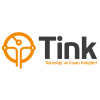
Centres of vocational excellence and public-private partnerships
Autonomy and public-private partnerships (PPPs) are key ENE thematic areas linked to the institutional development, governance, management, and financing of centres of vocational excellence (CoVES). In the context of vocational education and training (VET), autonomy is the right of education provider to self-govern and make decisions, independently and with accountability, on educational, organisational, financial, staff-related and other matters, in pursuit of activity carried out within the scope defined by the law.
In the area of autonomy, three operational areas could be distinguished:
- Human resources management (e.g. hiring/firing staff, networking with external partners such as regional players, employers)
- Financing (e.g. raising, mobilising and/or allocating funds, generating income, paying staff salaries)
- Pedagogical (e.g. curricula design/update, teaching, introducing innovations).
Based on ETF experience, different forms of PPPs could be developed to contribute to shaping relevant vocational skills required by the labour market. Autonomy and PPPs are playing a key role in the operations of VET institutions. CoVEs are institutions that should prove strong leadership, managerial, financial, pedagogic and networking capacities. This also refers to CoVE capacity for engaging private actors and forging PPPs in different forms.
PPPs create the opportunity to combine the competences of multiple actors and generate new solutions and services.
What happens when CoVEs operate autonomously in forging PPPs?
- Agile responses to labour market trends
- Innovation
- Optimised skills development
- Optimised curriculum design
- Optimised work-based learning
- Optimised continuing VET
- Greater scope for R&D.
In July 2020, ENE launched a partnership to provide an opportunity for sharing knowledge and best practices to support innovative models among participating centres of excellence in the areas of autonomy and PPPs. This is done through peer learning activities, network meetings, coaching sessions as well as developing research in order to map existing practices and grasp potential working processes in the field.
Eight countries are participating: six ETF partner countries (Azerbaijan, Georgia, Israel, Morocco, Tunisia and Turkey) and two EU Member States (Finland, Netherlands)
In guiding and facilitating the work of the partnership, the ETF is supported by the Finnish organisation Omnia, a large and modern education provider that offers a wide range of services supporting lifelong learning.
The first phase of the partnership’s activities took place between July 2020 and July 2021. One of the objectives of this phase was to conduct a baseline study on CoVE autonomy in forging PPPs.
The baseline study demonstrates how PPPs foster excellence in VET. Autonomy provides flexibility to CoVEs and enables them to respond to skills needs as they evolve. When working closely with the private sector, CoVEs are attuned to changing demands in the labour market and receive direct input on the skills businesses require. This, in turn, allows CoVEs to develop relevant curricula to impart requisite skills. Thus, students graduate with employable skills and when employees want to reskill or upskill, they can rely on CoVEs to meet their needs.
Key findings from the baseline study
- Cooperation with the private sector is multi-dimensional. It covers several development areas of education-business collaboration, ranging from innovative VET programme and curriculum development to mutual human resource and professional training, and international cooperation.
- Participating centres have a high level of autonomy in making decisions on the degree and form of public-private cooperation.
- Autonomy of CoVEs can strongly contribute to innovation in VET.
- Centres operating as autonomous entities in PPPs at the regional level are key to innovation in VET.
- Autonomy and decentralisation are the key driving forces to be acknowledged by VET policy in VET reform.
The second phase of the partnership’s activities started in July 2021 and is planned to be implemented till spring 2023.
Ongoing activities
- In-depth study of working processes and key practices in CoVEs to advance autonomy and pPPPs, picking up on outcomes from the baseline study
- Sharing knowledge and practices through peer-learning activities for core members in order to unpack international models (such as the Finnish and Dutch models)
- Coaching sessions for the participating CoVEs to dig in depth into various aspects of autonomy and PPP in VET
- Analysing the progress made by participating CoVEs as well as barriers and enablers for progress in this field.
- Feeding the results of the study into other ENE thematic areas (e.g. work-based learning, creating entrepreneurial CoVEs, transitioning to green and digital skills)
For more information, join our online community on Open Space.
See also:
ENE peer learning activity in Finland









